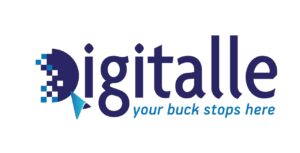In a world increasingly grappling with automation, income inequality, and a precarious social safety net, Universal Basic Income (UBI) has emerged as a bold and controversial policy proposal. UBI advocates envision a world where every citizen receives a regular, unconditional income from the government, regardless of their employment status. This seemingly simple idea has ignited passionate debates, with proponents touting it as a revolutionary solution to poverty and opponents raising concerns about its feasibility and potential downsides.

The Rise of UBI: A Disruptor in the Welfare Landscape
The concept of UBI is not entirely new. However, technological advancements and the threat of widespread job displacement due to AI have reignited the debate. Proponents argue that traditional welfare programs are cumbersome, bureaucratic, and often leave people trapped in a cycle of poverty. Some believe that UBI, offers a simpler, more dignified approach.
The idea is straightforward: every citizen receives a fixed sum of money regularly, with minimal to no strings attached. This basic income would act as a safety net, ensuring everyone has enough to cover essential needs like food, shelter, and healthcare. Additionally, UBI could empower individuals to pursue education, start businesses, or care for family members without fear of losing benefits.
UBI and its Potential Benefits
The potential benefits of UBI are multifaceted and paint a compelling picture:
- Poverty Reduction: A guaranteed income could significantly lift people out of poverty by providing a buffer against unexpected expenses and allowing them to focus on finding better-paying jobs.
- Economic Stimulus: Regularly injecting cash into the economy could boost consumer spending, leading to increased economic activity and job creation.
- Increased Equality: UBI could help narrow the income gap by providing a financial boost to low-income earners.
- Improved Health and Well-being: Financial security can significantly improve mental and physical health. UBI could lead to better nutrition, access to healthcare, and reduced stress levels.
- Empowerment and Choice: With a basic income, individuals would have greater freedom to pursue education, volunteer work, or caregiving roles without financial constraints.
- Improved Job Market: UBI could incentivize people to take on higher-skilled jobs or pursue entrepreneurship by providing a safety net while they establish themselves.
These potential benefits paint a hopeful picture. However, implementing such a large-scale program comes with its own set of challenges.
Potential Drawbacks of UBI
While UBI’s potential benefits are undeniable, there are also significant drawbacks to consider:
- Cost: Funding a UBI program for an entire population would be incredibly expensive. Governments would need to find new revenue sources or cut existing programs, which could be politically unpopular.
- Inflation: A sudden influx of cash into the economy could lead to inflation, potentially negating the benefits of the basic income.
- Work Disincentive: Some argue that UBI could discourage people from working, especially for low-paying jobs. They might choose to rely on the basic income instead of actively seeking employment.
- Implementation Hurdles: Determining the appropriate amount for UBI, managing the program effectively, and addressing potential fraud are significant logistical challenges.
- Impact on Existing Programs: UBI could lead to the dismantling of existing welfare programs, potentially leaving certain vulnerable populations worse off.
These drawbacks raise legitimate concerns that require careful consideration before UBI can be implemented effectively.
The Road Ahead: Navigating Towards a More Equitable Future
The debate surrounding UBI is complex and multifaceted. It is not a silver bullet solution, but it does offer a promising new approach to tackling poverty and inequality. However, careful planning and thorough analysis are crucial before widespread adoption.
Pilot programs are already underway in various countries and cities, allowing researchers to gather valuable data on UBI’s real-world effects. These studies will be instrumental in shaping future policy decisions.
Beyond UBI itself, a multi-pronged approach is likely necessary. Investments in education and skills training can help equip people for the jobs of the future. Additionally, strengthening social safety nets and promoting access to affordable healthcare and housing are crucial in the fight against poverty.
Ultimately, the question of UBI’s viability hinges on a larger conversation about the future of work and the social contract between citizens and the government. As automation disrupts traditional job markets, we need innovative solutions to ensure everyone can thrive. UBI holds promise, but its success depends on a comprehensive approach that addresses both the financial needs of individuals and the needs of a rapidly changing society.
Whether UBI becomes the cornerstone of a more equitable future or remains a thought experiment remains to be seen. However, one thing is clear: the conversation surrounding it is pushing us to rethink poverty
